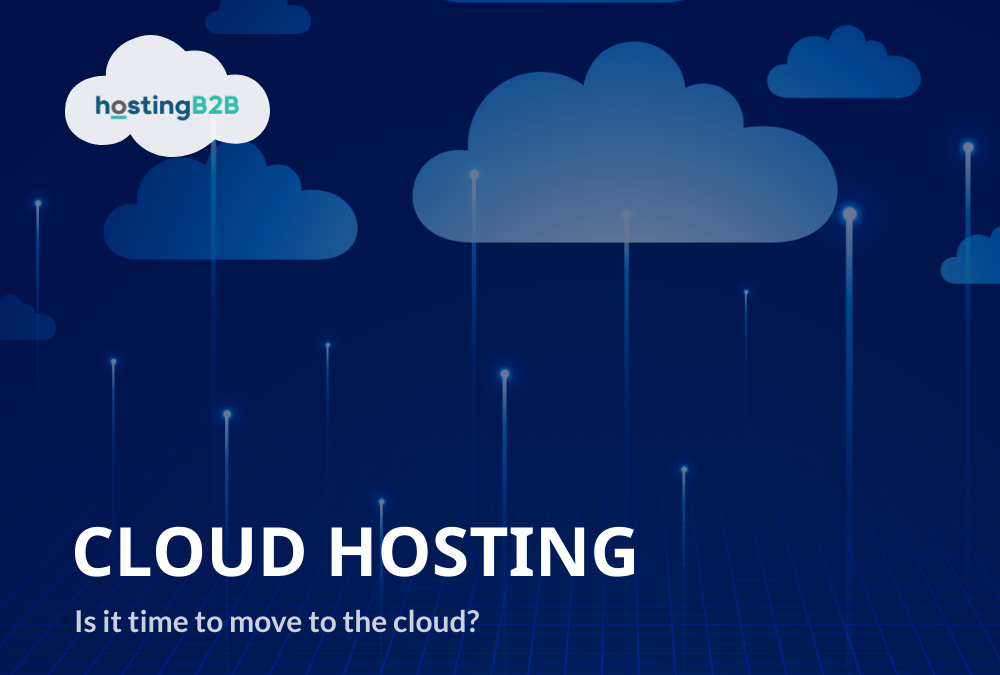


Web hosting companies offer a lot of different types of plans. The most common ones are:
- Shared hosting
- VPS Hosting
- Cloud hosting,
- WordPress hosting
- Dedicated servers
If your you’re feeling like your website has outgrown shared hosting or any other plan you’ve tried our that means you are in need of a better solution. It’s time to consider VPS or cloud hosting. Both will provide you with the reliability, performance, and resources you need to expand.
But how do you decide which option is best for you?
What exactly is Cloud Hosting?
Unlike traditional hosting where solutions are deployed on a single machine, you can host your website or app on the cloud, spreading your data effectively across multiple interconnected machines on a virtual environment(cloud).
Cloud hosting spreads data across a number of different physical servers, each in different locations around the world. Each of these servers are connected together in a virtual environment. This is where the ‘cloud’ part of cloud hosting comes in.
Advantages
- Reliable: Data-centers have multiple redundancy systems(power, servers,internet,storage etc) in place to ensure uninterrupted service.
- Security: Since many customers rely on them, data-centers allocate a lot of resources to security either physical (security cards, id’s,etc) or software (Security information and event management tool(SIEM))
- Scalable & Flexible: Provision more resources in a matter of minutes for as long as you need.
- Efficient: Pay only for the resources you use.
Disadvantages
- Out of your Control: You trust another party with the safety of your data.
- Provider Dependent: Every provider offers different package with different features. In case of technical issues you have to go through your provider’s customer support instead of solving them in house. Not all providers have 24/7/365 customer support.
- Internet Access Dependent: Though to a lesser extend nowadays you are dependent on internet access to access your data.
What exactly is a VPS?
VPS stands for Virtual Private Server. A physical server is divided into multiple Virtual Servers using a hypervisor(e.g VMware ESXi, Red Hat KVM), a software that creates and runs virtual machines(VM).
- Each VPS features it’s own Operating System (OS), receives a predefined number of resources dedicated to that VPS and to that VPS alone. The Virtual Servers in that machine operate independently, do not interfere with each other, can be separately rebooted.
- You can customize the server to fit your needs( choose OS and server applications).
- Can restart the system without affecting anyone else.
- You get dedicated resources.
- Its able to scale. If you need more resources you can add more later.
Which to choose?
While a VPS is undoubtedly powerful, it does not guarantee up-time due to high traffic or a technical error. If the actual machine breaks down then your VPS will go down as well. Nevertheless it provides complete freedom and security.
If you are interested in hosting just a website it’s a great choice.
Cloud Hosting however stands out from every other hosting solutions since it’s the most flexible, cost effective and reliable hosting solution.
Larger WordPress sites or networks could benefit greatly from using cloud hosting, which is especially true if they can boast tons of content and traffic.
Huge companies and institutions such as Netflix, Airbnb and NASDAQ use cloud hosting. If your site is as big as any of these, then you should consider cloud hosting as one of the best options.
Why Hostingb2b Solutions ? Contact us TODAY to find out!
Error: Contact form not found.
Here are some of the other services we provide here At HostingB2B:
The post Cloud Hosting vs VPS hosting appeared first on HostingB2B.













